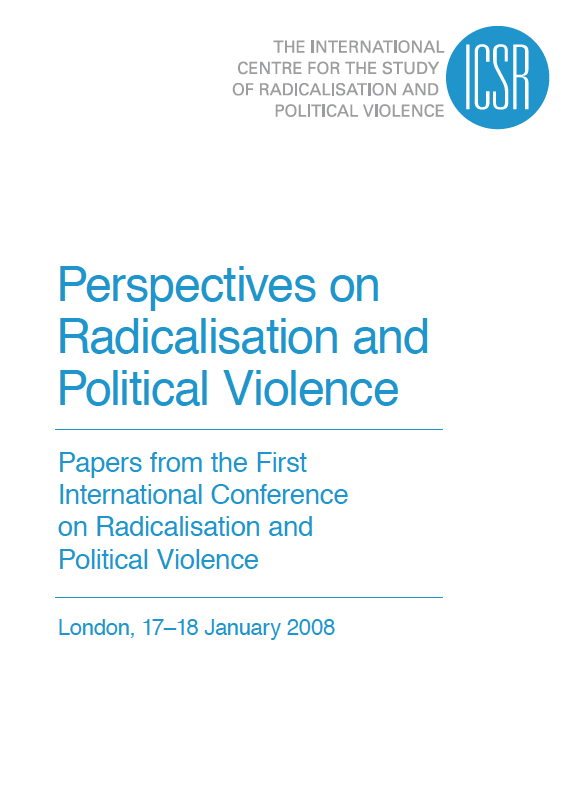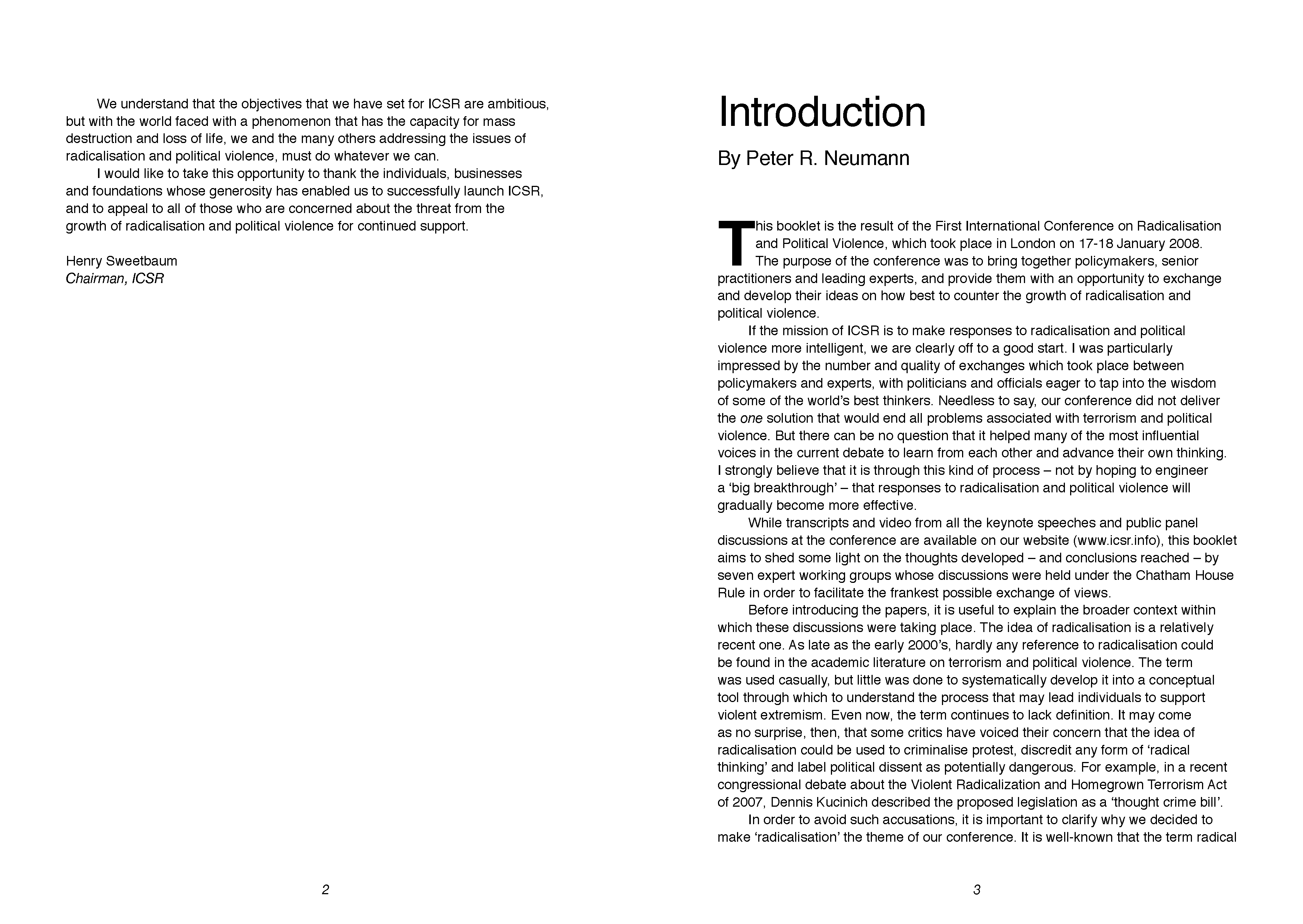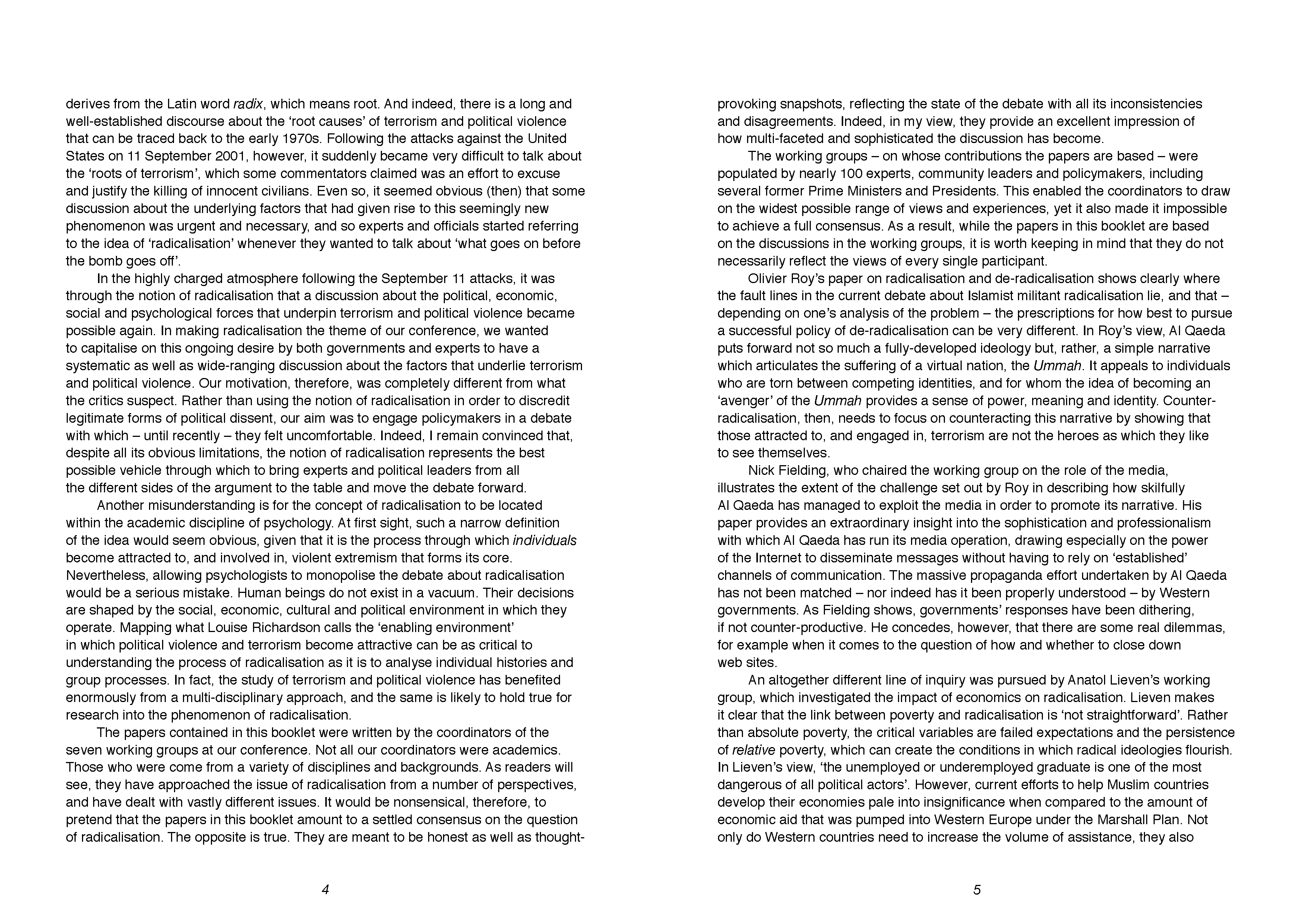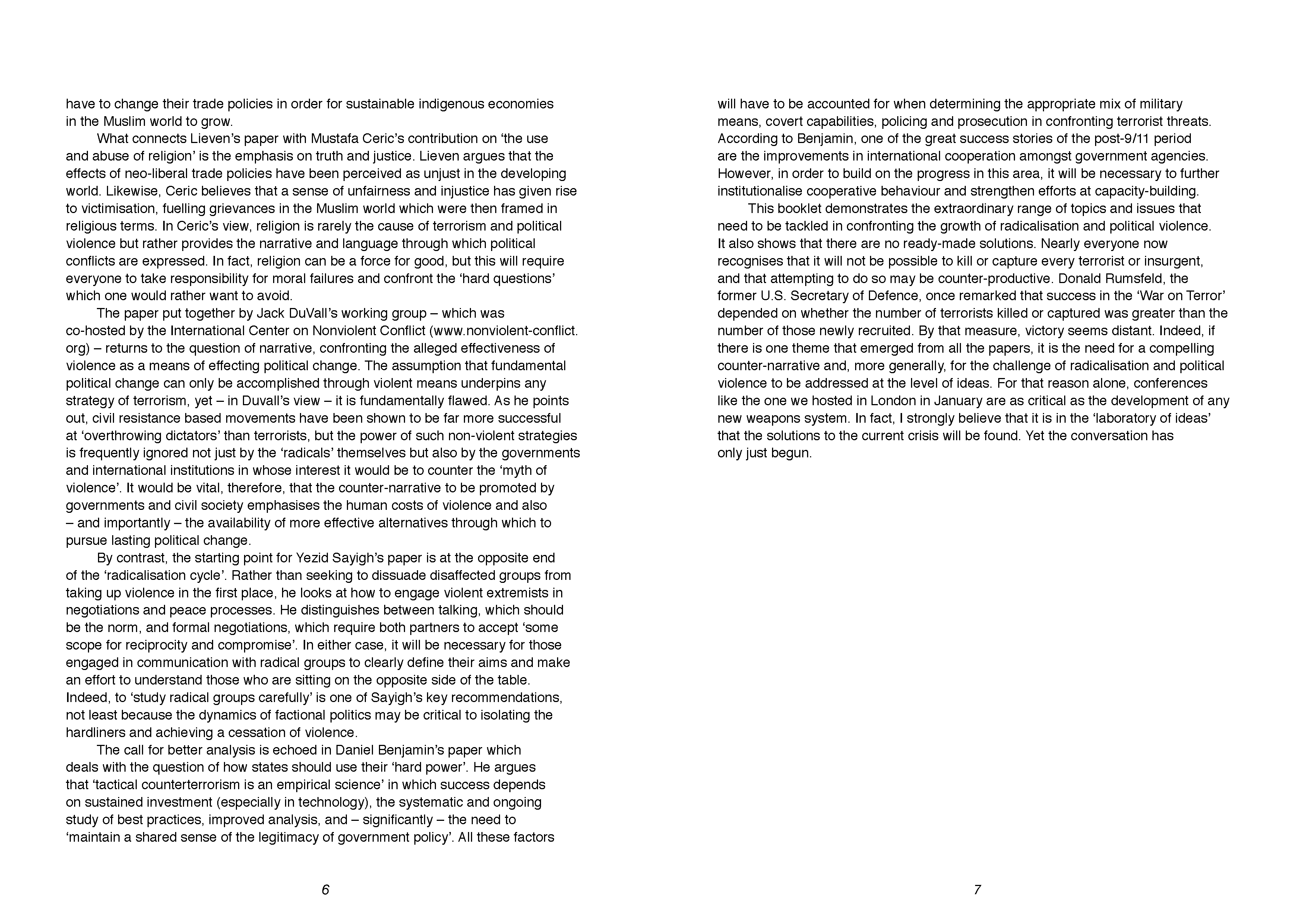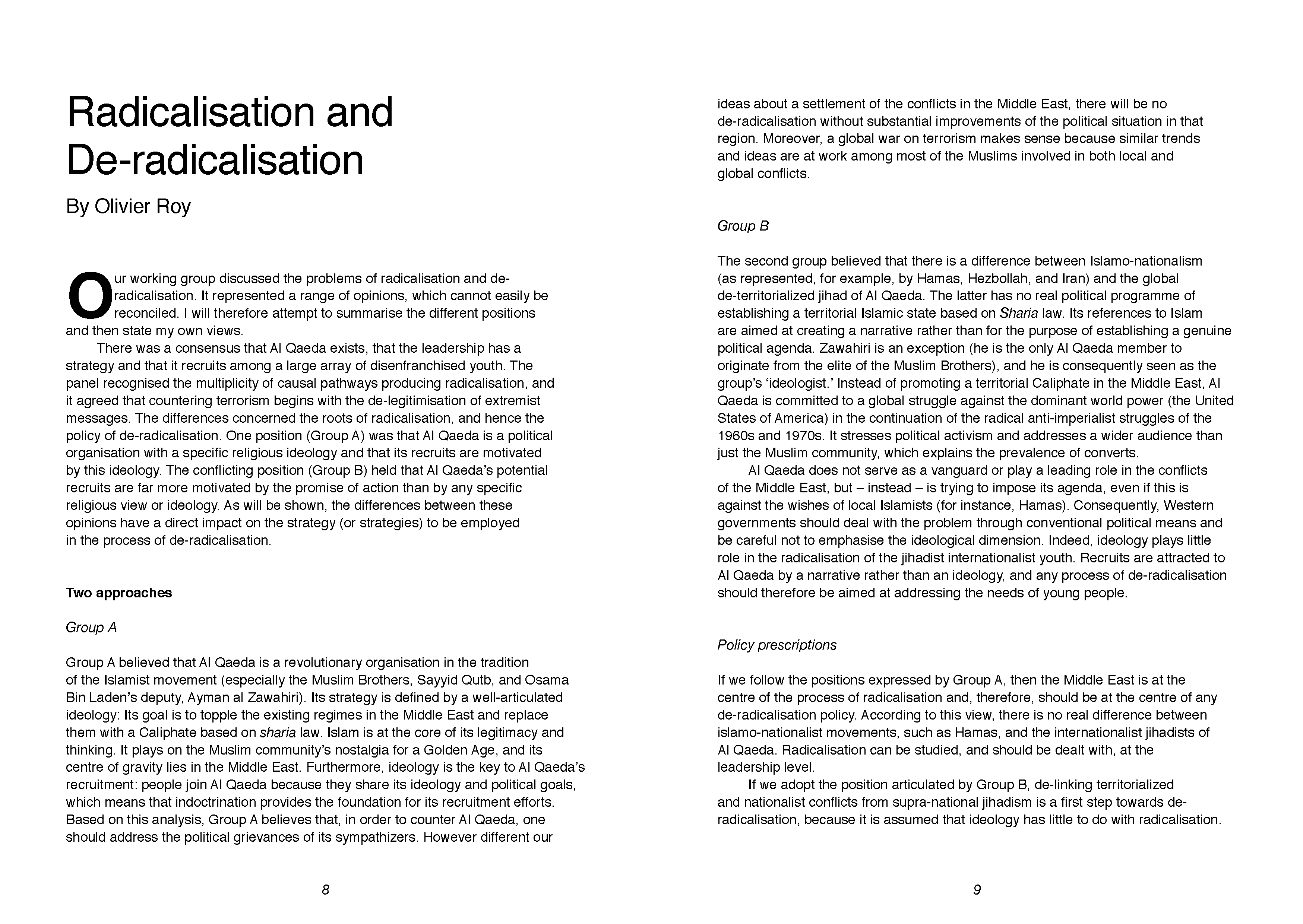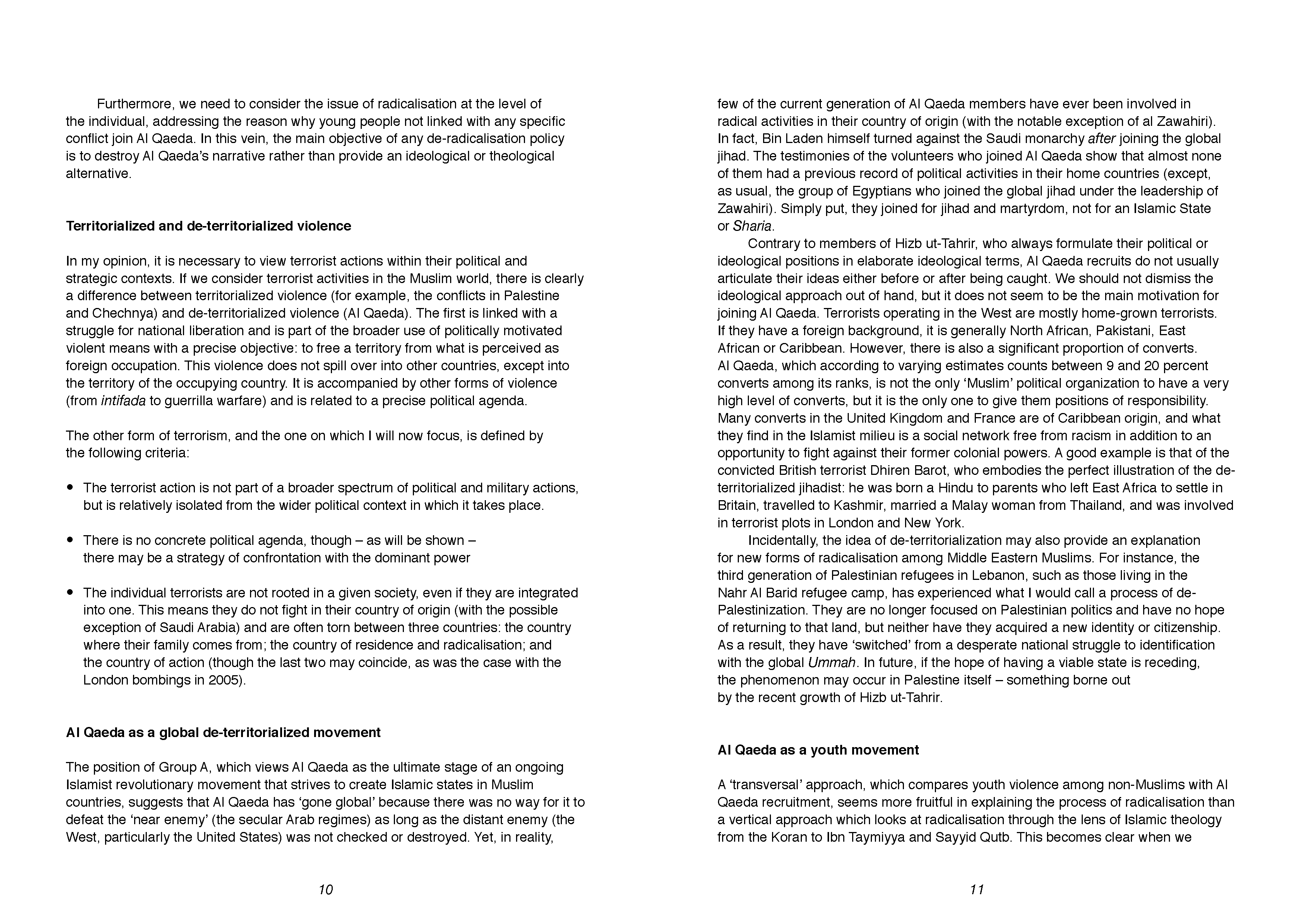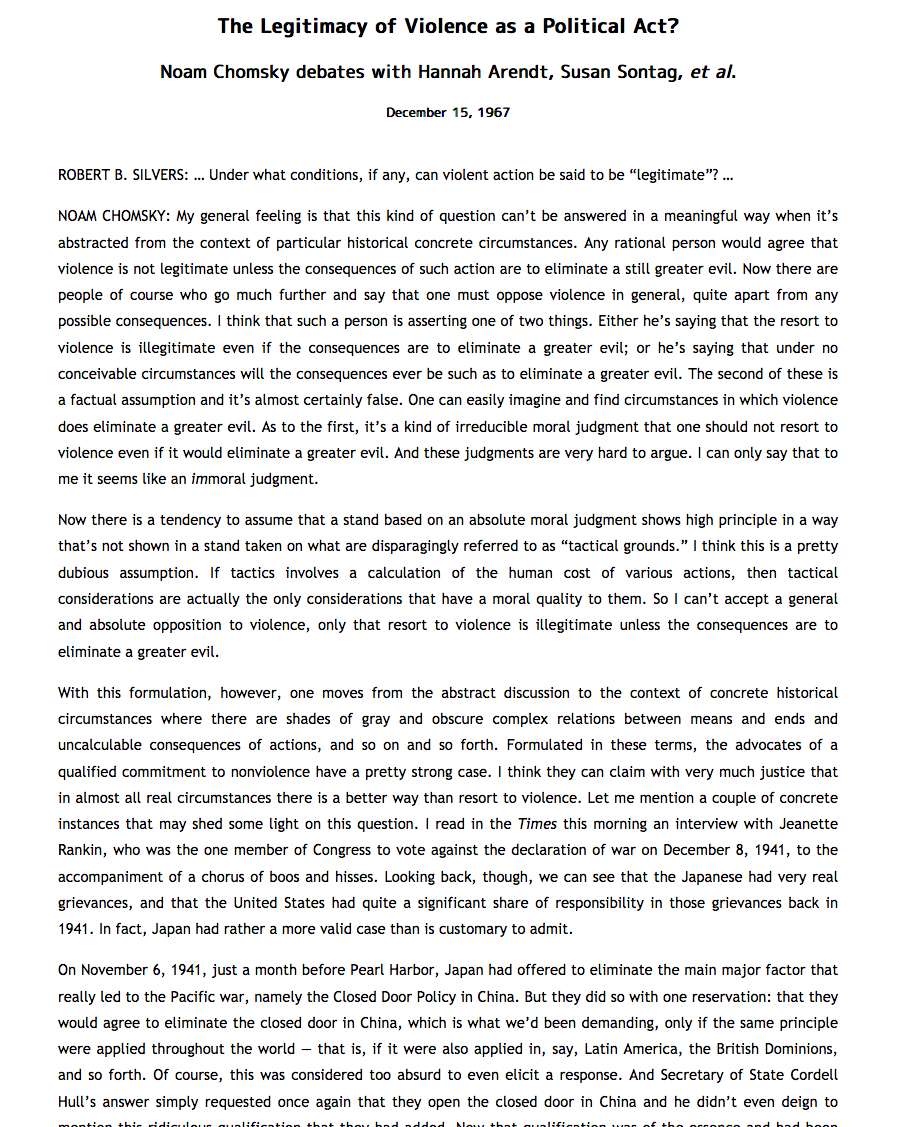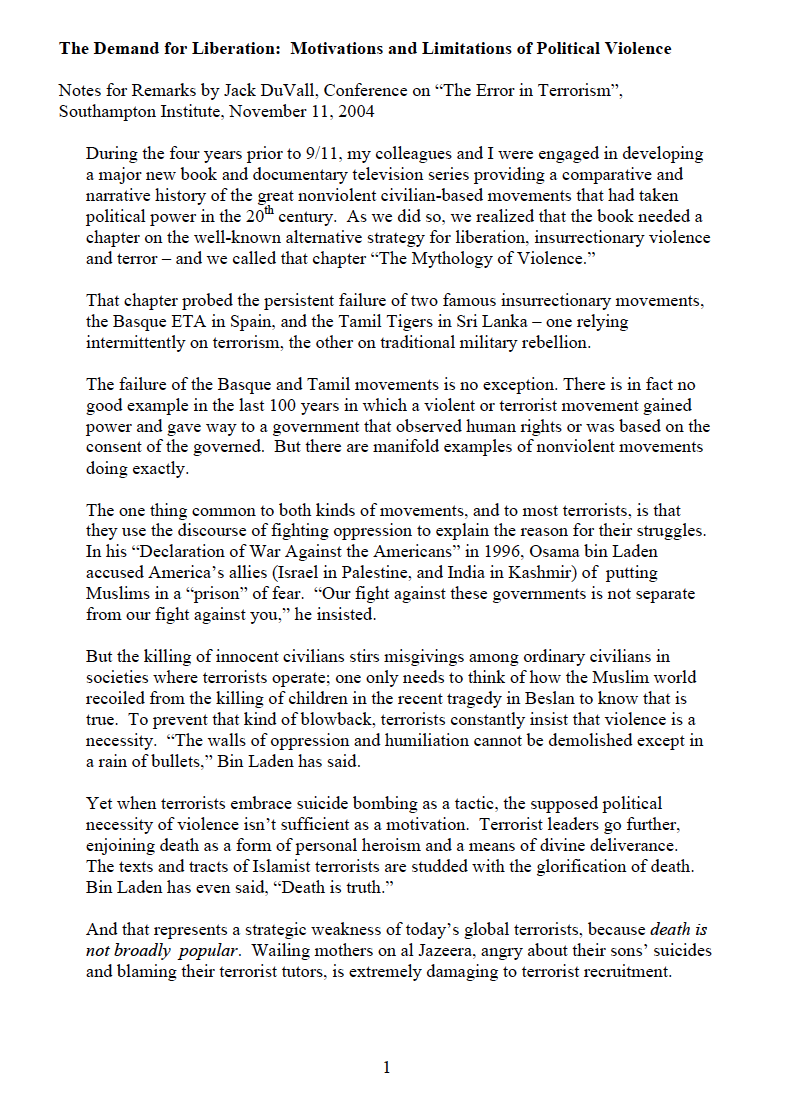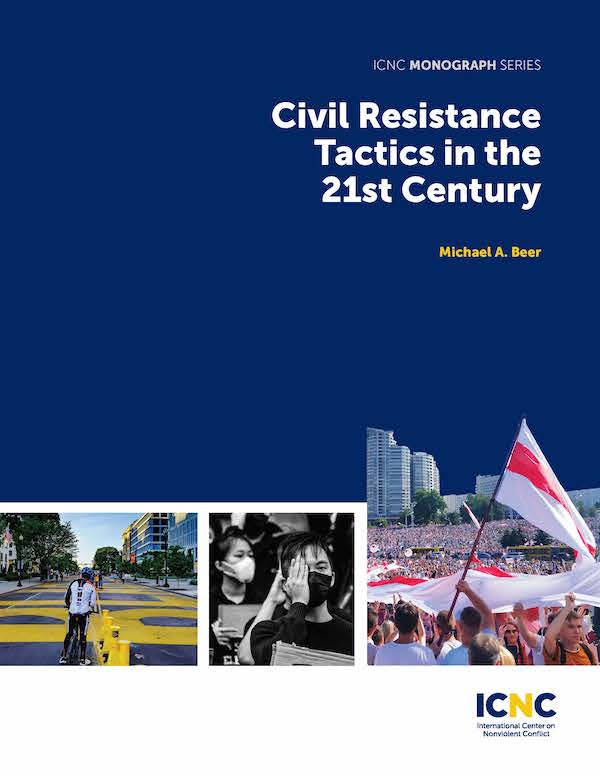Perspectives on Radicalisation and Political Violence
This booklet is the result of the First International Conference on Radicalisation and Political Violence, which took place in London on 17-18 January 2008. The purpose of the conference was to bring together policymakers, senior practitioners and leading experts, and provide them with an opportunity to exchange and develop their ideas on how best to counter the growth of radicalisation and political violence.
In the highly charged atmosphere following the September 11 attacks, it was through the notion of radicalisation that a discussion about the political, economic, social and psychological forces that underpin terrorism and political violence became possible again. In making radicalisation the theme of our conference, we wanted to capitalise on this ongoing desire by both governments and experts to have a systematic as well as wide-ranging discussion about the factors that underlie terrorism and political violence. Our motivation, therefore, was completely different from what the critics suspect. Rather than using the notion of radicalisation in order to discredit legitimate forms of political dissent, our aim was to engage policymakers in a debate with which – until recently – they felt uncomfortable. Indeed, I remain convinced that, despite all its obvious limitations, the notion of radicalisation represents the best possible vehicle through which to bring experts and political leaders from all the different sides of the argument to the table and move the debate forward.
The papers contained in this booklet were written by the coordinators of the seven working groups at our conference. Not all our coordinators were academics. Those who were come from a variety of disciplines and backgrounds. As readers will see, they have approached the issue of radicalisation from a number of perspectives, and have dealt with vastly different issues. It would be nonsensical, therefore, to pretend that the papers in this booklet amount to a settled consensus on the question of radicalisation. The opposite is true. They are meant to be honest as well as thought-provoking snapshots, reflecting the state of the debate with all its inconsistencies and disagreements. Indeed, in my view, they provide an excellent impression of how multi-faceted and sophisticated the discussion has become.
Papers from the First International Conference on Radicalisation and Political Violence
January 17-18, 2008
